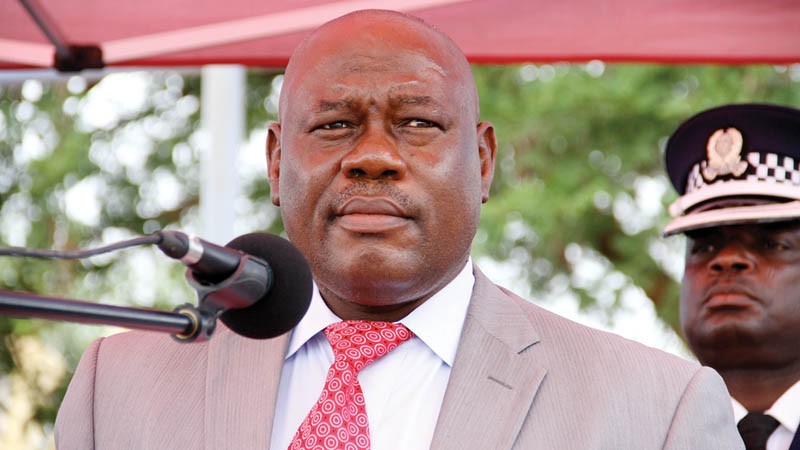Granting bail a thorn on the side of the justice system
Onalenna Kelebeile | Friday October 19, 2018 15:27


Speaking at the official opening of the Directorate of Public Prosecutions office in Selebi-Phikwe recently, Kgathi said they are trying to interrogate and debate the issue of bail, and said it is very difficult to explain to someone outside the remit of the justice delivery system as to how the system works.
He explained that government has three pillars being the executive, the judiciary and the legislature.
He said through the doctrine of the separation of powers they cannot, as the executive dictate to other arms of government, determine who cannot be granted bail and how.
“We respect the separation of powers. However, we are on a daily basis confronted head-on by people demanding to understand why we continue to have serial killers roaming freely in the society,” he said.
The minister called upon those within the justice delivery system to come to the ministry’s aid on how the resolution can be made without causing any harm to the doctrine of separation of powers.
He added that his ministry is working around the clock to address the backlog of cases within the justice system, which is their priority area.
He further noted that there are remands in prisons whose cases have not been heard for three years and said they are working around the clock to address the situation.
Kgathi said the opening of the DPP office in Selebi-Phikwe would help reduce crime, as there would be speedy assessment of dockets, registration of cases, completion of trials and ultimate conviction of the guilty. He added that speedy trials are a deterrent to would-be criminals.
He noted that the office would ensure that financial savings are made, as prosecutors will no longer travel long distances to prosecute matters before Selebi-Phikwe Magistrate’s Court, as they would now be stationed here.
“The police would also have to just submit dockets locally as compared to previously when they had to submit cases that needed to be attended by the DPP to Gaborone and Francistown. This would reduce some of the systematic delays in the criminal justice process as all stakeholders are now within reach,” he added.
The minister also said he is considering the extension of the Asset Forfeiture Unit of the DPP to Selebi-Phikwe to collect the benefits of crime from criminals. He added that with speedy trials, seizure and confiscation of proceeds of crime criminals and their associates would have to reform.
For his part Selebi-Phikwe West MP Dithapelo Keorapetse expressed gratitude over the decision to open the offices in Selebi-Phikwe, as it would assist in the administration of justice.
He added that it comes at a time when violent crimes are growing in the country and also in town because of the economic challenges. He emphasised that it is of paramount importance for the DPP to have three factors in the delivery of justice.
He said the independence of the DPP is paramount, the integrity of its workforce is also important and that it must have public confidence.
“It is very important for the DPP to be independent so that it can be efficient and more effective. Our hope is that more prosecutors would be employed to address the backlog of cases,” he said.
He thanked the Ministry of Defence, Justice and Security for its effort to have nearly a full bench at the high court, as it would ease the backlog.
Keorapetse they now expect the Police to be redeployed from prosecutions, to deal with investigations and crimes and to focus on their core mandate.
“We also wish to see the independence of the DPP not for it to be administratively under the Attorney General,” he said.
The MP added that for the public to have confidence in the justice system the tenurial security of the Directorate of the DPP is important. He said currently the directorate is appointed on a five renewable contract and challenged that as reviews are made, the ministry must either give a 10-year non-renewable contract or have an arrangement similar to that of the Attorney General where tenurial security is guaranteed by the constitution.
He called on the minister to consider setting up a specialised division within the DPP to deal with white collar, fiscal and revenue crimes that are often sophisticated and on the rise. “
Accord officials under the DPP more training to deal with such cases. DPP must also account to Parliament that acts as a barometer for public opinion while the authority lies with the minister,” he said.
